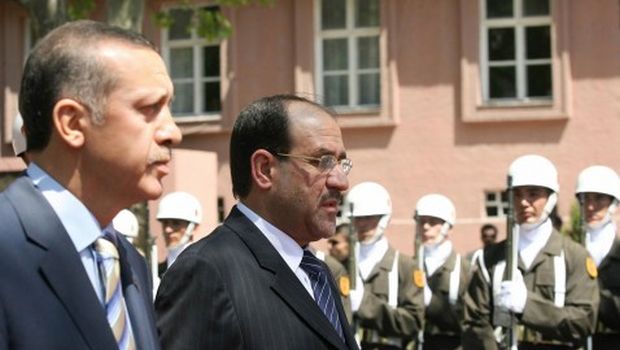While it does partially reflect the truth, the notion that Turkey’s zero problems with its neighbors has turned into zero good relations with any neighbor has become a boring cliché.
Indeed, there is a stark difference between the popularity Turkey enjoyed in both the East and the West over the past decade and its current standing.
Just a few years ago, Turkey was seen as a rising star. This was true not only in its own region, but also on the world stage, as many saw a potential for Turkey to assume a global role. While the Justice and Development Party (AKP) enjoyed great appreciation from its Western allies, its neighbors in the Arab and Islamic worlds were very happy with the huge interest from Ankara’s new conservative rulers and their unprecedented sympathy for Islamic values.
Yet that bright hope started to change with the beginning of the new decade. First came the crisis with Israel and the downgrading of that bilateral relationship to a minimum. Turkey’s objections to Prime Minister Nuri Al-Maliki’s governing style added Iraq to Ankara’s list of problematic countries. Then the AKP government started to be criticized for following sectarian policies. This criticism gained momentum with the spark of the Arab Spring.
The Turkish government’s rush to break bridges with the regime of Syrian President Bashar Al-Assad and support the opposition resulted in a deadly civil war on its borders, but it also put a strain on Ankara’s relations with Tehran and Moscow, both supporters of Assad. Finally, because Turkey fiercely objected to the military coup that ousted the Muslim Brotherhood-led government from power, Ankara currently has downgraded diplomatic relations with the new administration in Cairo as well.
In polls conducted in 2011 and 2012 in 16 countries in the Middle East, Turkey topped the list for the most popular country. The same poll, conducted by the Turkey Economic and Social Studies Foundation (TESEV) in 2013 and made public on December 3, shows that Turkey’s popularity has dropped from 78 percent to 59 percent.
In view of this, one would be tempted to say that Turkey can no longer play an active role in the region. Yet that would mean jumping too quickly to a conclusion.
First of all, Turkey is too big and influential a power to be ignored. No matter how much its relations with key countries in the region are strained—which can make Turkey appear irrelevant—no country in the region can genuinely say that they are not taking into account Turkey’s stance while shaping their policies.
Turkey’s geostrategic positioning and its involvement in developments from Iraq to Syria, from Afghanistan to Egypt, make it a power to be reckoned with.
While the above-mentioned poll showed an erosion in Turkey’s popularity among the public across the Middle East, it has not shown a similar erosion in Turkey’s perception as an important regional power. Sixty percent of those polled said they supported a greater role for Turkey, and 64 percent said Turkey was becoming more influential each year. One out of two people polled said Turkey was a model for the Middle East.
Equally, the current negative outlook of Turkey’s position in the region is not necessarily there to stay. “One of the strengths of the AKP is its flexibility. It can change track if it sees something is going wrong,” İbrahim Uslu, the head of a polling company doing regular polls for the AKP, once told me.
An opinion poll conducted by İstanbul’s Kadir Has University has shown a sharp decrease in the Turkish public’s approval of the AKP’s foreign policy. The poll, made public on December 4, 2013, shows that the number of those who said they found the government’s foreign policy successful dropped from 34 percent in 2012 to 25.1 percent in 2013. There is a similar decline in the public’s approval for AKP’s Middle-Eastern policies. Nearly half of the participants said Turkey should recognize the new administration in Cairo.
There is currently talk of a reset in Turkey’s foreign policy. Turkey has started to distance itself from radical groups in Syria. Although it was excluded from the international talks that resulted in an interim agreement on Tehran’s controversial nuclear program, there is renewed dialogue between Tehran and Ankara as the foreign ministers of the two countries have been meeting on the margin of international gatherings. The Iraqi foreign minister’s visit to Ankara followed by Ahmet Davutoğlu’s visit to Baghdad has decreased the tension between the two countries. Despite the fact that the war of words between Prime Minister Recep Tayypip Erdoğan and Maliki reached the borders of reciprocal insults at times, plans are being made for Erdoğan’s visit to Baghdad in January.
Finally, while there might be discontent among the Turkish public about the way Middle-Eastern policies are conducted, the belief that Turkey will continue to play an important role in the region is still very high. In the eyes of the Turks, the United States comes first with 33.3 percent, while Turkey comes second with 23.8 to play a primary role in determining the future of the Middle East, according to the Kadir Has poll.
While the Turkish government might fine-tune its policies, this will not mean it will retreat to its corner. Turkey’s intensive involvement in the region will continue and it will have the continued backing of its public, and more so if it makes some readjustments.
The counterpoint to this article can be read here.
